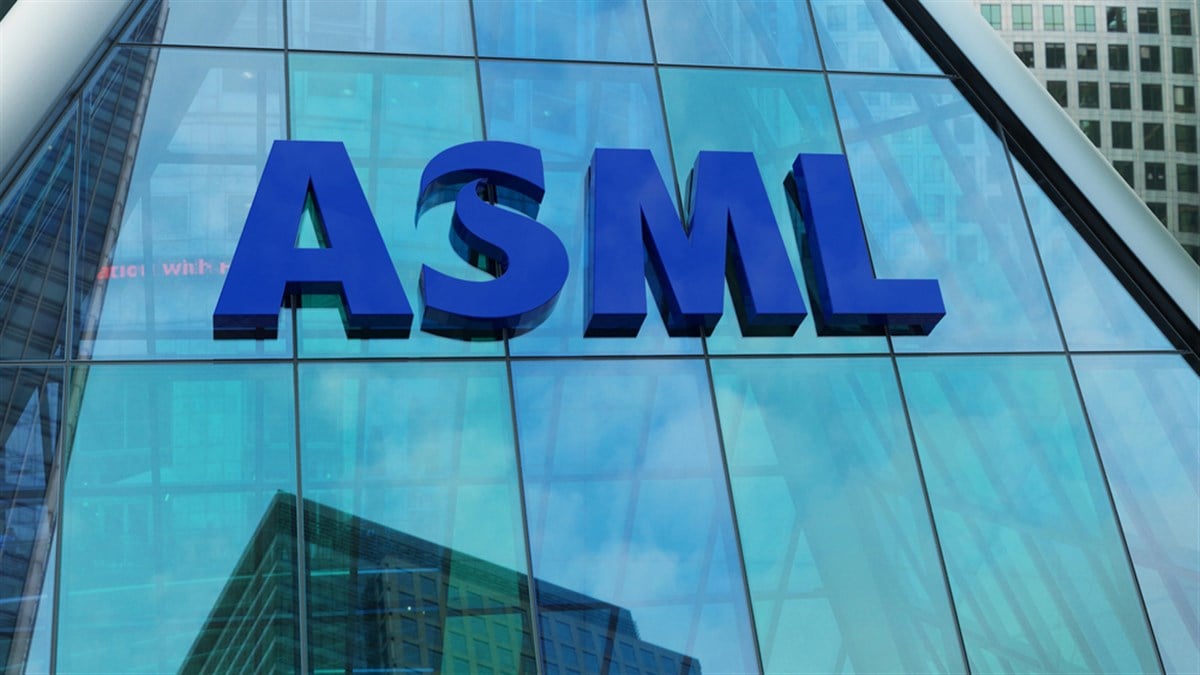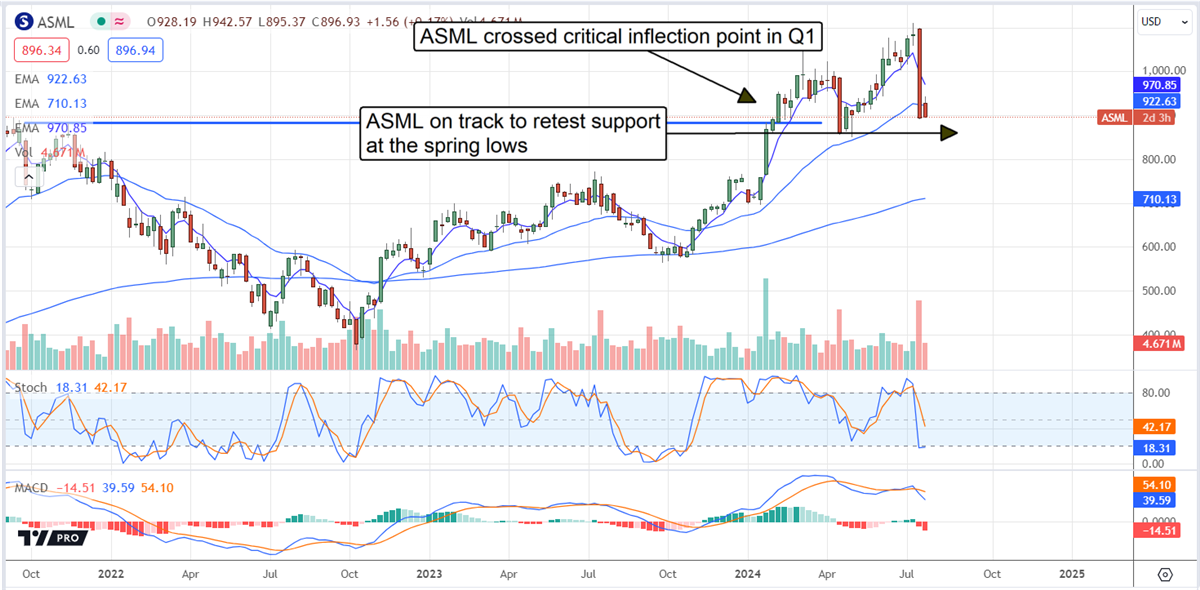Financial News
ASML Stock Nearing Bottom: Is Now the Time to Buy?

Despite solid fundamentals, semiconductor equipment stocks like ASML (NASDAQ: ASML) are correcting and on the verge of a deeper correction. The correction is partly due to tepid Q3 guidance but more so because of sector rotation and the political risks from both sides of the aisle. Risks include tariffs on Chinese imports, export curbs, and the impact of US elections on Taiwan.
The opportunity is that the correction is overblown and will soon lead to a solid Buy signal. The sell-off is overblown because neither sector rotation nor political risk alters the robust demand outlook for semiconductor manufacturing equipment. An outlook supported by end-market normalization in memory and compute chip markets, the rise of AI, and semiconductor manufacturing reshoring efforts. Because ASML has a unique position and moat within the industry, it is well-positioned to lead its peers when the rebound begins. ASML is the only manufacturer that is making extreme ultraviolet (EUV) machines to produce the tiniest chip technologies at scale.
ASML Hits Trough, Reaffirms Guidance for Transitional 2nd Half
ASML produced another quarter of YoY decline. However, details within the report, including sequential growth, a double-digit increase in bookings, and guidance, suggest the business is on track to exit the contraction and return to YoY growth soon. The company reported $6.73 billion (converted from euros) in net revenue, down 16% from last year but up 9% sequentially, with strength expected in the back half. Revenue was driven by a 35% increase in new units sold, compounded by a 200% increase in old units, offset by decreased services.
Margin news is also good. The company widened its gross margin while controlling costs, resulting in leveraged sequential gross and net income growth. Gross profits increased by 19% and net income by 29%, leaving the GAAP EPS at $4.35, which was up 29% and better than forecast, although down from last year.
The guidance is the only hiccup in the report, but it affirms the outlook for sequential improvement and a return to YoY growth. The Q2 outlook is shy of consensus but offset by reaffirmed full-year guidance, the 55% increase in net bookings driven by EUV sales, and management's expectation for sustained improvement on the back of AI.
Analysts Lead ASML’s Price Target Higher; Value Deepens
The analysts' response to ASML’s Q2 release and guidance is the opposite of what you expect after seeing the price action. Numerous analysts tracked by MarketBeat have reiterated bullish ratings and raised their price targets, implying that a deep value exists because the lowest target offers more than a 10% upside. The consensus, rising after the report, implies closer to a 30% upside.
The takeaway from the analysts' chatter is that near-term headwinds are present, but AI is still expected to drive a significant boost in spending next year. Citi analyst Atif Malik is looking ahead to the $120 billion of expected semiconductor spending next year, focusing on the newest technologies such as ASMLs EUV systems. Those are critical to making the most advanced chips, including AI accelerators. Bank of America analyst Vivek Arya points to seasonally expected underperformance in the SOXX as one factor for today’s lower share prices.
ASML’s Correction Nears the Bottom
Shares of ASML fell more than 17% the week of the earnings release and may remain under pressure for the summer. The market moved below the 150-day EMA which is a critical support target and trigger point for bearish trades, however, the downside potential may be limited. The next critical support target is near $880, about 2% below recent action, and may be reached soon.
The $880 level may provide unbreakable support because it is consistent with the spring lows, which confirmed support at a previous resistance point. Assuming the market reconfirms support at that level, the rebound in share prices could begin by late summer or early fall. The rebound could be strong because of the outlook for sequential improvements, return to growth, and the unknown impact of AI-related semiconductor equipment spending. The risk for investors is that volatility may persist because of macroeconomics, including US election uncertainty, which creates whipsaws and traps.

More News
View More





Quotes delayed at least 20 minutes.
By accessing this page, you agree to the following
Privacy Policy and Terms Of Service.



